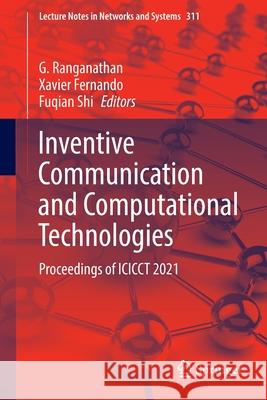Inventive Communication and Computational Technologies: Proceedings of Icicct 2021 » książka
topmenu
Inventive Communication and Computational Technologies: Proceedings of Icicct 2021
ISBN-13: 9789811655289 / Angielski / Miękka / 2022 / 635 str.
Kategorie:
Kategorie BISAC:
Wydawca:
Springer
Seria wydawnicza:
Język:
Angielski
ISBN-13:
9789811655289
Rok wydania:
2022
Wydanie:
2022
Numer serii:
000797696
Ilość stron:
635
Waga:
1.44 kg
Wymiary:
23.39 x 15.6 x 5.28
Oprawa:
Miękka
Wolumenów:
01
Dodatkowe informacje:
Wydanie ilustrowane











